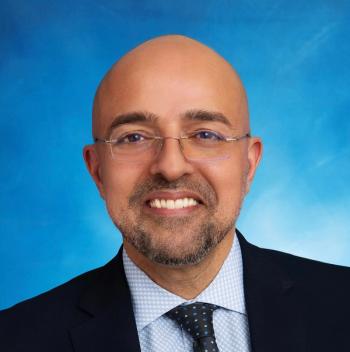
Pager and Horizon Health Services Announce Digital Health Partnership
Pager CEO Walter Jin spoke to Healthcare Analytics News about the goals of the partnership and his company's AI integration.
The largest provider in New Jersey today announced it was teaming up with Pager, a company that provides mobile connectivity services. Horizon Blue Cross Blue Shield of New Jersey (HBCBSNJ) has 3.8 million members, and a statement says the arrangement is made in hopes of providing those subscribers a “single entry point” into what “many find to be a fragmented and confusing healthcare system.”
The agreement will extend Pager’s platform of digital health services to HBCBSNJ subscribers. The company’s app provides an interface for patients’ healthcare questions, connecting them to a “command center” in which a combination of a machine learning-powered chatbot and an actual live nurse will be able to direct them to care.
“For the most part, when people have a question about their healthcare today, or when they get sick, they just go on the web, right? Wikipedia, WebMD, Google searches…and then they end up thinking they have 10 things,” Pager CEO Walter Jin (right) told Healthcare Analytics News. Since it often takes a few weeks to secure an appointment with one’s primary care physician, he stressed a necessity to connect patients with higher-quality insight on demand.
The statement says the collaboration will launch with a selected population “in the coming months.” “It’s not going to be a snap of the fingers. It’s a staged rollout,”Jin said. He says the first step in the process is integrating with the health system’s databases and the related third-party service providers, followed by a second stage of onboarding patients.
“By-and-large when you work with a health plan, they probably already have an agreement for specific services, whether it be telemedicine or house calls or diabetes management programs,” Jin said. “It’s different for every payer. What we are not doing is trying to displace those point solutions, we’re integrating with them.”
The
“Hospital XYZ and Hospital ABC don’t talk to each other, so if you do visit them individually they have a lot of data about you, but neither of them have a holistic version of your medical record,” he said, “But the payer does, because the payer is actually paying for all of these costs. We have the ability to connect with both different data systems, in addition to our own data that we develop when a patient is communicating with our command center.”
Jin, who previously helped found the Carlyle Group’s healthcare investments arm, says he wants the company to bring experiences like his own to more patients. His brother is an ER doctor who he is able to contact for medical advice via text whenever he needs.
“I think that’s the core essence of the patient experience we want to bring in for every American who isn’t lucky enough to have an immediate family member who is a doctor. We want to let everyone have that privilege,” Jin said.







































